Friday, November 18, 2005
'Hawks' and 'chickenhawks': yet more discursive detritus. posted by Richard Seymour
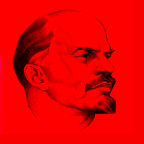 The officially designated 'doves' are often more aggressive than the 'hawks'. This just happens to be one of the minor nuances of an imperial language that is clotted with bullshit. 'Chickenhawks' is one of those designations that is meaningless, yet sounds brilliant for antiwar activists. The supposition is that if you have not been in a war, then you have no business supporting war, or sending others to war, or even commenting on a war.
The officially designated 'doves' are often more aggressive than the 'hawks'. This just happens to be one of the minor nuances of an imperial language that is clotted with bullshit. 'Chickenhawks' is one of those designations that is meaningless, yet sounds brilliant for antiwar activists. The supposition is that if you have not been in a war, then you have no business supporting war, or sending others to war, or even commenting on a war.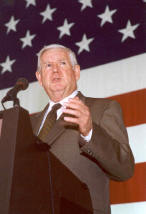 Democratic Congressman John Murtha might reasonably be described as a hawk. Yet, he is now demanding the immediate withdrawal of US troops from Iraq - not for Iraqis, not on anti-imperialist grounds, but on classical realist grounds of national self-interest. The fact that such a case is controversial may well say something about how dangerous the Bush administration and its ideological apparatus is to the interests of the US ruling class. Murtha has been accused by Republicans of selling out the troops and all the usual recrudescent McCarthyist shit. However, while Murtha ought to be defended on this utterly necessary stance from rightists, Republicans and warmongers, it is important to recognise that a man who voted for the war on Iraq when the world knew what it knew about the intentions of the Bush administration and knew that the WMD claims were a lie, is not a friend of the antiwar movement. The only reason I have to say this is that Murtha has struck back with the common retort that "x didn't go to war, yet x doesn't want to hear my criticisms of this war because x is really a pansy who has never tasted napalm over morning spam n eggs". And many liberals have actually bought this shit. Here's Juan Cole, for instance, channelling Bob Dylan.
Democratic Congressman John Murtha might reasonably be described as a hawk. Yet, he is now demanding the immediate withdrawal of US troops from Iraq - not for Iraqis, not on anti-imperialist grounds, but on classical realist grounds of national self-interest. The fact that such a case is controversial may well say something about how dangerous the Bush administration and its ideological apparatus is to the interests of the US ruling class. Murtha has been accused by Republicans of selling out the troops and all the usual recrudescent McCarthyist shit. However, while Murtha ought to be defended on this utterly necessary stance from rightists, Republicans and warmongers, it is important to recognise that a man who voted for the war on Iraq when the world knew what it knew about the intentions of the Bush administration and knew that the WMD claims were a lie, is not a friend of the antiwar movement. The only reason I have to say this is that Murtha has struck back with the common retort that "x didn't go to war, yet x doesn't want to hear my criticisms of this war because x is really a pansy who has never tasted napalm over morning spam n eggs". And many liberals have actually bought this shit. Here's Juan Cole, for instance, channelling Bob Dylan.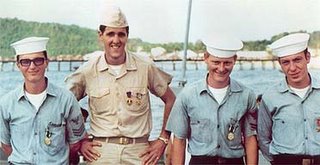 Murtha is cited as a Vietnam Vet, which it is, apparently, sacrilege to impugn for both liberals and reactionaries in the United States. Deputy Dawg Kerry made a repugnant ass of himself by "reporting for duty" to an overwhelmingly antiwar Democrat rally during the election campaign in 2004. His campaign seemed to revolve around his record of having been a frat boy murderer in Vietnam, while some Republican ravers insisted "uh-uh, he really wasn't a frat-boy murderer, he was a frat-boy wimp". Bush's coke-fuelled absention from the Indochina subventions is somehow taken as a failing, yet I can't help seeing it as one of the few redeeming features about the man: his truly sinister personality traits appear to have emerged when he gave up booze and communed with Billy Graham.
Murtha is cited as a Vietnam Vet, which it is, apparently, sacrilege to impugn for both liberals and reactionaries in the United States. Deputy Dawg Kerry made a repugnant ass of himself by "reporting for duty" to an overwhelmingly antiwar Democrat rally during the election campaign in 2004. His campaign seemed to revolve around his record of having been a frat boy murderer in Vietnam, while some Republican ravers insisted "uh-uh, he really wasn't a frat-boy murderer, he was a frat-boy wimp". Bush's coke-fuelled absention from the Indochina subventions is somehow taken as a failing, yet I can't help seeing it as one of the few redeeming features about the man: his truly sinister personality traits appear to have emerged when he gave up booze and communed with Billy Graham.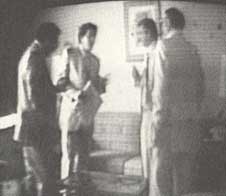 Let's look at Murtha. He was in Vietnam, and he voted for the Iraq war: all that this means is that Murtha was a sucker twice: over Vietnam and over Iraq. He helped large numbers of people get killed both times around. He also appears to be one of the more pro-Israel Democrats, which is a tough competition to take part in. He did manage to avoid charges over his involvement in the Abscam scandal (in which a leading Senator and a number of Congressman were recorded taking bribes from what they thought were Saudi plutocrats and oligarchs), largely because Tip O'Neill placed the sybaritic CIA agent Charlie Wilson on the Ethics Committee to get him off. In short, we aren't speaking of a saint, and any halo he might acquire would be quickly knocked askance by Israeli and Saudi interests rushing to lobby him. Murtha's position is a sign of the diminishing confidence of a section of the US ruling class in Bush's war.
Let's look at Murtha. He was in Vietnam, and he voted for the Iraq war: all that this means is that Murtha was a sucker twice: over Vietnam and over Iraq. He helped large numbers of people get killed both times around. He also appears to be one of the more pro-Israel Democrats, which is a tough competition to take part in. He did manage to avoid charges over his involvement in the Abscam scandal (in which a leading Senator and a number of Congressman were recorded taking bribes from what they thought were Saudi plutocrats and oligarchs), largely because Tip O'Neill placed the sybaritic CIA agent Charlie Wilson on the Ethics Committee to get him off. In short, we aren't speaking of a saint, and any halo he might acquire would be quickly knocked askance by Israeli and Saudi interests rushing to lobby him. Murtha's position is a sign of the diminishing confidence of a section of the US ruling class in Bush's war. I myself, suffice to say, did not join the army, since armies these days tend to be mercenary outfits rather than compulsory citizens armies. And I really don't want to spend time around anyone who chose to be in the army. My parents tried to get me into the RAF through the Air Training Corps, but I embarrassed those stiff Ulster lips by crying at the slightest provocation. No amount of shouting in my divinely shaped ear could compel me to yell at unnatural and unliveable decibels: "Yes, Flight Sergeant!" when commanded to. From personal experience, since this seems to be a sign and symbol of authenticity in American politics, I can say that any fool who remains in the military and serves for very long is a neanderthal, and anyone who goes on to vote in favour of allowing these neanderthals to rampage around a country full of dark-skinned people is a benighted twit who ought not to be entrusted with double-bagging at a supermarket never mind the care of citizens of another country.
I myself, suffice to say, did not join the army, since armies these days tend to be mercenary outfits rather than compulsory citizens armies. And I really don't want to spend time around anyone who chose to be in the army. My parents tried to get me into the RAF through the Air Training Corps, but I embarrassed those stiff Ulster lips by crying at the slightest provocation. No amount of shouting in my divinely shaped ear could compel me to yell at unnatural and unliveable decibels: "Yes, Flight Sergeant!" when commanded to. From personal experience, since this seems to be a sign and symbol of authenticity in American politics, I can say that any fool who remains in the military and serves for very long is a neanderthal, and anyone who goes on to vote in favour of allowing these neanderthals to rampage around a country full of dark-skinned people is a benighted twit who ought not to be entrusted with double-bagging at a supermarket never mind the care of citizens of another country.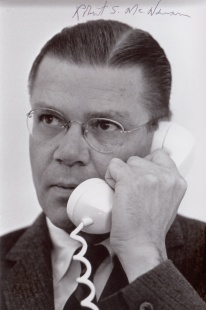 It is excellent news that the US political establishment is being forced to come to terms with its internal divisions, and a large part of this can be put down to popular protest at various levels. It is by no means decisive on its own, but it matters. But we should avoid the heroic idealisation involved in fawning over warmongers who start whimpering about 'mistakes'. Robert McNamara, Chomsky used to say, was hailed by the antiwar left as a hero who had spurned his imperialist background. Yet he, like Murtha, rejected a war because it was a 'mistake' not because it was fundamentally wrong at any level. He rejected it on the grounds that it did not meet US national interests. And "US national interests" is, of course, a chimera. There are the interests of the ruling elite and those of most working class Americans. The lachrymose sentimentalisation of 'real war heroes' is perhaps seen as a sop to the authentic, grubby working class: they who have faced mortality, and are obliged to be sober, unlike the capricious Bush Bourbon Dynasty. But it is in fact deeply patronising as well as insulting to those who have always rejected imperialism or militarism, or who have at least been wise enough to stay out of it. In the context of Vietnam and Iraq, there are no 'war heroes' except for those who waged war against imperialism. And anyone who participated in the cataclysm in Indochina and continued to support imperialist ventures is not so much a hero as a sap, if not worse.
It is excellent news that the US political establishment is being forced to come to terms with its internal divisions, and a large part of this can be put down to popular protest at various levels. It is by no means decisive on its own, but it matters. But we should avoid the heroic idealisation involved in fawning over warmongers who start whimpering about 'mistakes'. Robert McNamara, Chomsky used to say, was hailed by the antiwar left as a hero who had spurned his imperialist background. Yet he, like Murtha, rejected a war because it was a 'mistake' not because it was fundamentally wrong at any level. He rejected it on the grounds that it did not meet US national interests. And "US national interests" is, of course, a chimera. There are the interests of the ruling elite and those of most working class Americans. The lachrymose sentimentalisation of 'real war heroes' is perhaps seen as a sop to the authentic, grubby working class: they who have faced mortality, and are obliged to be sober, unlike the capricious Bush Bourbon Dynasty. But it is in fact deeply patronising as well as insulting to those who have always rejected imperialism or militarism, or who have at least been wise enough to stay out of it. In the context of Vietnam and Iraq, there are no 'war heroes' except for those who waged war against imperialism. And anyone who participated in the cataclysm in Indochina and continued to support imperialist ventures is not so much a hero as a sap, if not worse.










